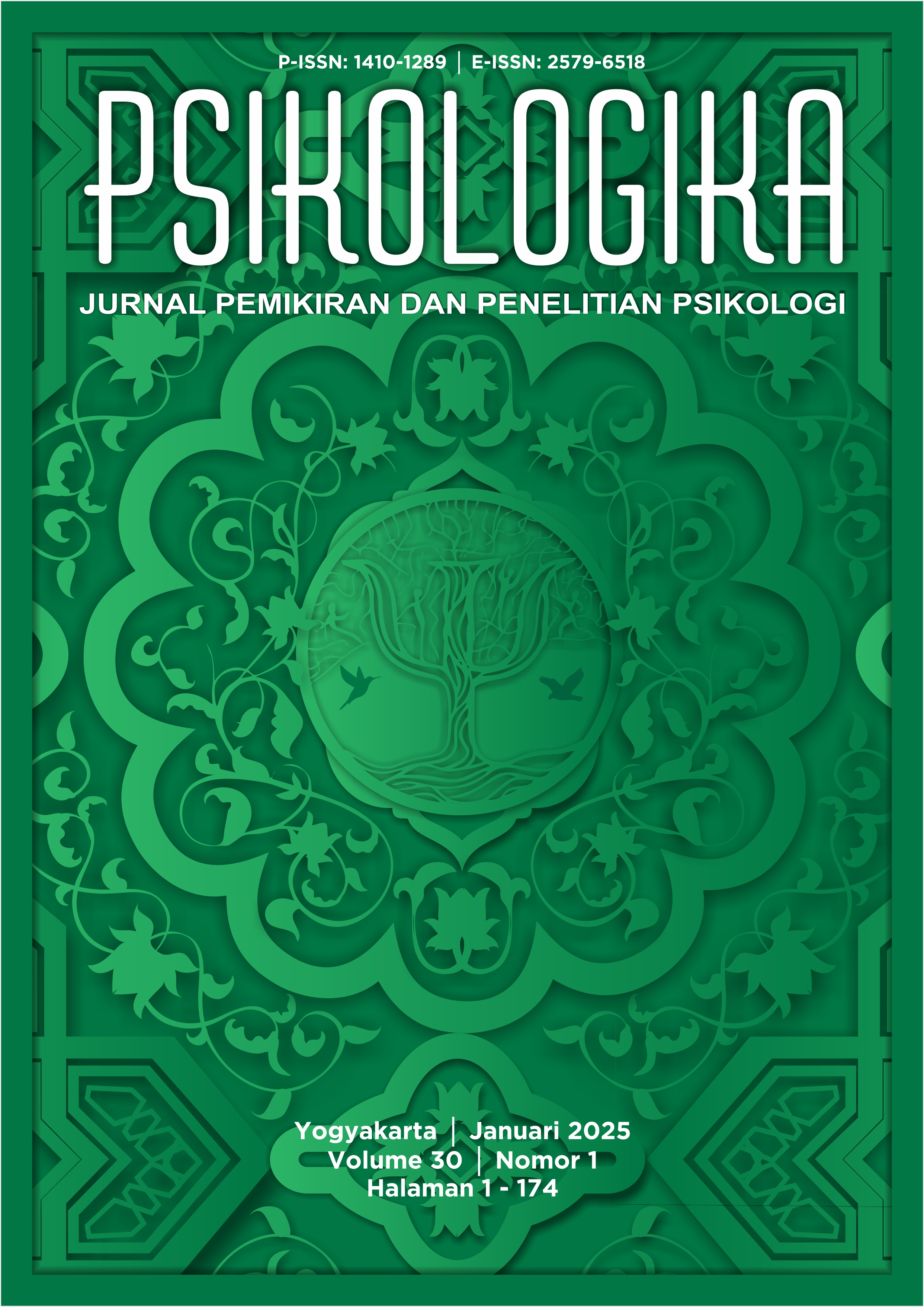Main Article Content
Abstract
Over the past decade, the Basic Empathy Scale (BES) has become a standard tool for measuring empathy. Despite the reliability and cross-cultural applicability, challenges remain regarding the validity and generalizability. This study aimed to validate the BES using Rasch model to establish the reliability and validity of the instrument in measuring empathy. Participants in validation consisted of 200 students from Islamic Boarding Schools (Pesantren) in Java, Indonesia. This analysis was conducted using a quantitative method with Rasch model analysis by incorporating a Wright map, item fit analysis, a unidimensionality test, and Different Item Functioning (DIF). The results showed that the BES was reliable for measuring cognitive and affective empathy, confirming unidimensionality and item fit among participants. These findings implied that the BES was suitable for application among Islamic Boarding School students. DIF analysis further showed that some items might require revision to elicit more accurate results even though the instrument was considered valid and reliable.
Keywords
Article Details
Copyright (c) 2025 Dr. Charyna Ayu Rizkyanti, Mr. Eka Hermansyah, Ms. Zaima Bunga Wijayanti

This work is licensed under a Creative Commons Attribution-ShareAlike 4.0 International License.
Authors who publish with this journal agree to the following terms:
- Authors retain copyright and grant the journal right of first publication with the work simultaneously licensed under a Creative Commons Attribution-ShareAlike 4.0 International License that allows others to share the work with an acknowledgment of the work's authorship and initial publication in this journal.
- Authors are able to enter into separate, additional contractual arrangements for the non-exclusive distribution of the journal's published version of the work (e.g., post it to an institutional repository or publish it in a book), with an acknowledgment of its initial publication in this journal.
- Authors are permitted and encouraged to post their work online (e.g., in institutional repositories or on their website) prior to and during the submission process, as it can lead to productive exchanges, as well as earlier and greater citation of published work (See The Effect of Open Access).




